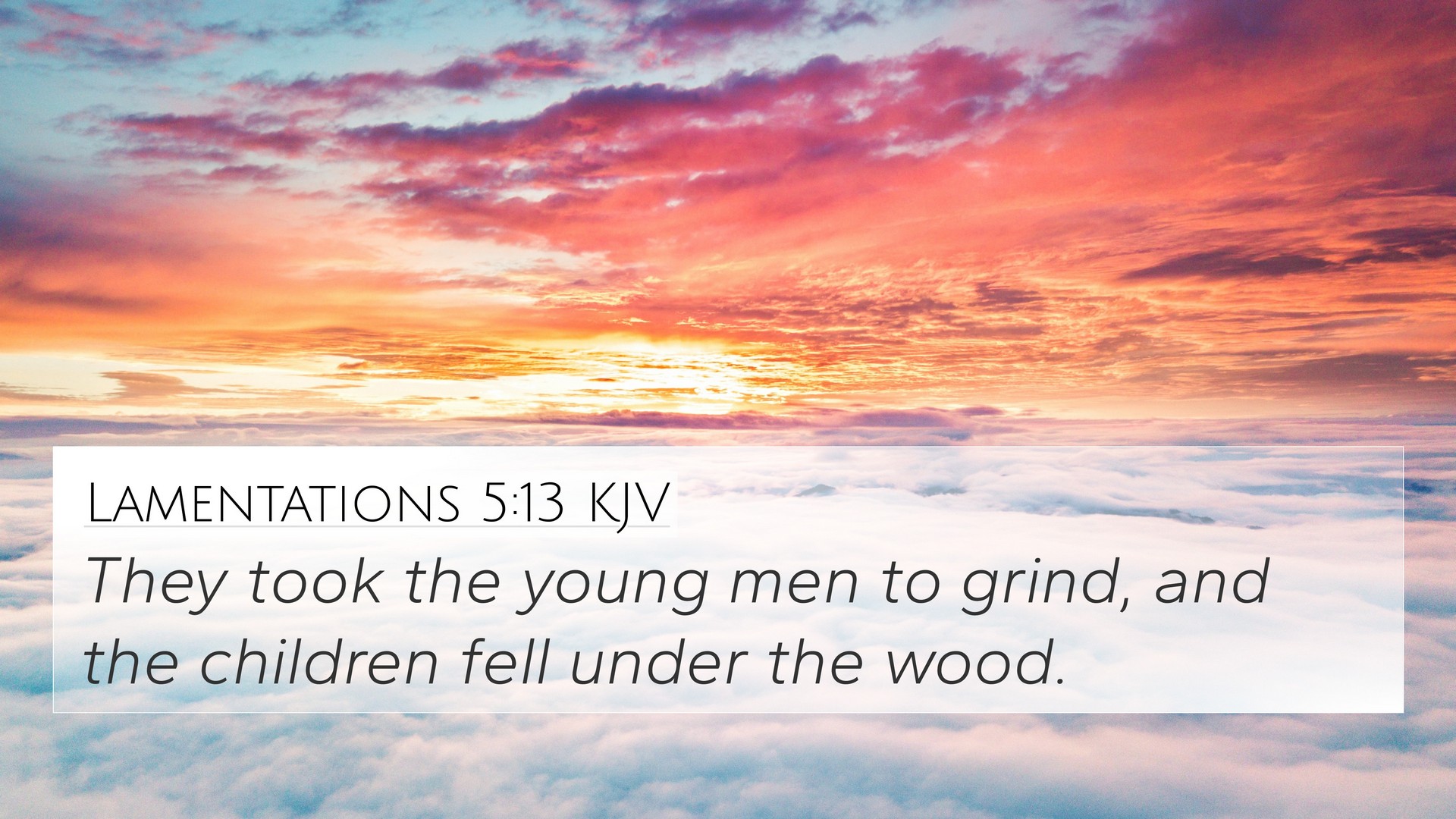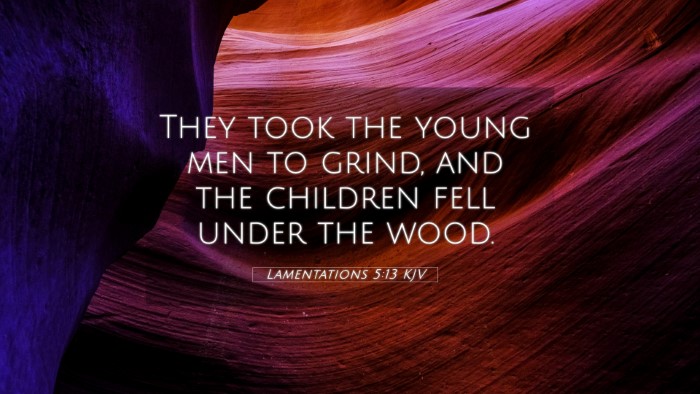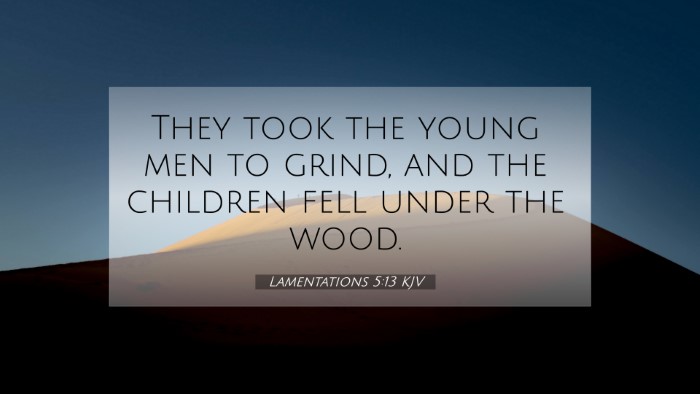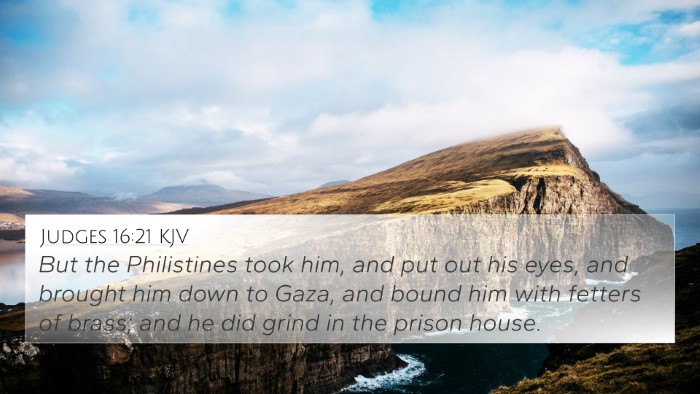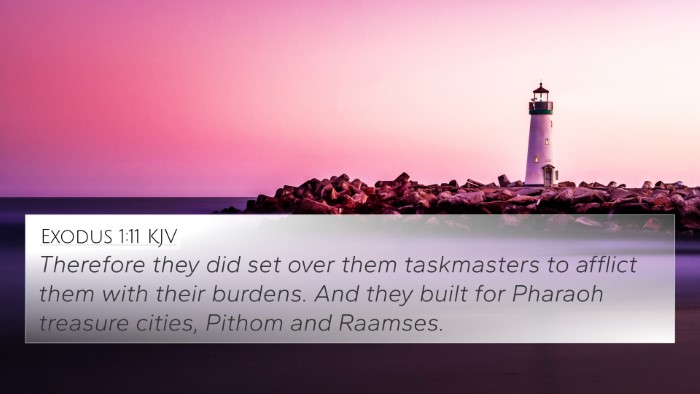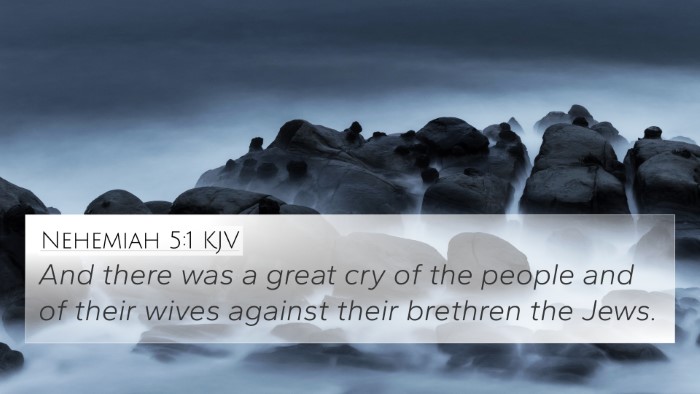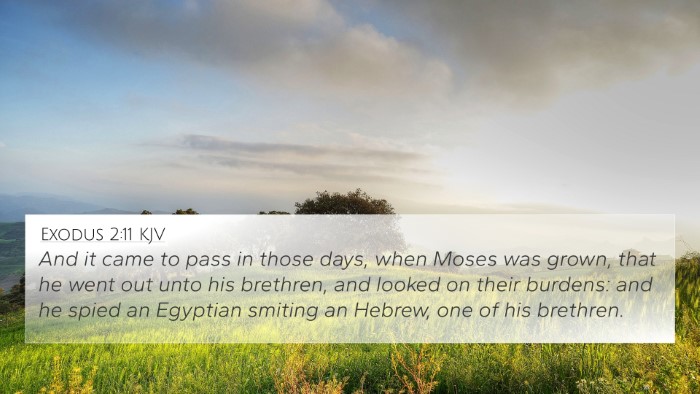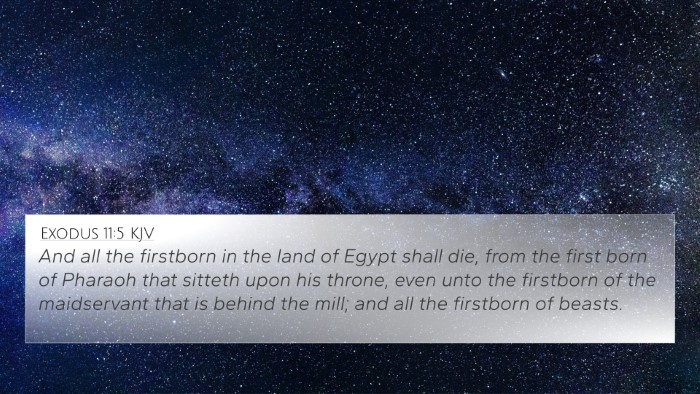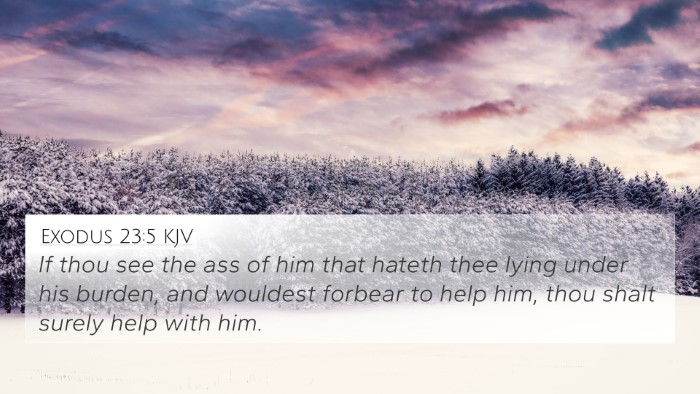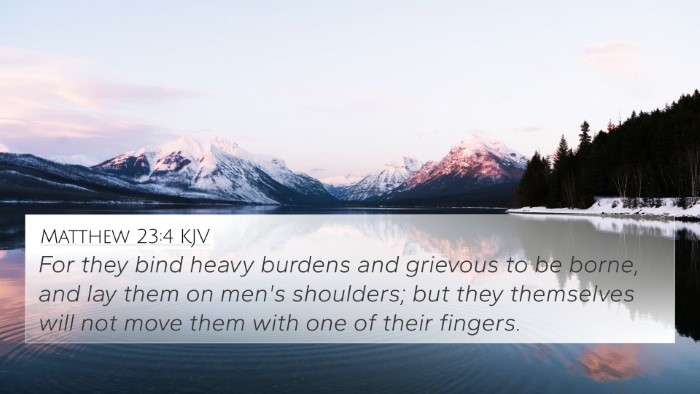Lamentations 5:13 - Summary and Interpretation
Bible Verse: Lamentations 5:13
Lamentations 5:13 states: "They took the young men to grind, and the children fell under the wood." This verse illustrates the grave social conditions and the harsh realities faced by the people of Jerusalem after the destruction of the city. It highlights the dire situation in which young men are forced into servitude, while the innocent children suffer as well.
Contextual Background
The book of Lamentations is traditionally attributed to the Prophet Jeremiah and depicts the sorrow and grief over the fall of Jerusalem. The city was devastated as a result of the Babylonian siege, leading to significant suffering among the inhabitants. This particular verse exemplifies the effects of war on society, emphasizing the loss of youth and innocence amidst calamity.
Commentary Insights
-
Matthew Henry's Commentary
Henry emphasizes the tragedy and degradation experienced by the youth, noting that the strength and vitality of young men are exploited by cruel circumstances, leaving children vulnerable and hopeless. This situation is viewed as a grim reminder of how war dehumanizes a society and robs the next generation of their potential.
-
Albert Barnes' Commentary
Barnes reflects on the sorrowful image of servitude and labor imposed on the young men, representing the loss of freedom and agency. He interprets this as a broader metaphor for the spiritual bondage that results from sin and neglect of God’s commandments. The grinding of grain symbolizes the futility and despair of their new existence after the fall.
-
Adam Clarke's Commentary
Clarke discusses the metaphorical implications of the children suffering under the wood. He interprets "wood" as a symbol of burden and labor. The imagery pointedly critiques the societal structures that force children into suffering, suggesting a complete reversal of parental duty and protection as they are pitted against the harsh realities of life.
Bible Cross-References
This verse can be cross-referenced with the following biblical texts that highlight similar themes of suffering, servitude, and divine judgment:
- Isaiah 3:5: "And the people will oppress one another—everyone his neighbor. The youth will be insolent to the elder, and the base to the honorable." This reflects the breakdown of social order and the oppression of the young.
- Jeremiah 14:8: "O the hope of Israel, his Savior in time of trouble, why should you be like a stranger in the land, and like a traveler who turns aside to tarry for a night?" This emphasizes the absence of hope and support in times of calamity.
- Matthew 11:28: "Come to Me, all you who labor and are heavy laden, and I will give you rest." This invitation offers hope and relief from burdens similar to the context of Lamentations.
- Psalm 137:1: "By the rivers of Babylon, there we sat down and wept, when we remembered Zion." expresses the deep sorrow of the Israelites in exile, paralleling the mourning in Lamentations.
- Ezekiel 4:16: "Moreover He said to me, 'Son of man, behold, I will cut off the supply of bread in Jerusalem; they shall eat bread by weight and with anxiety, and they shall drink water by measure and with dread.'" This reinforces the theme of scarcity and suffering post-siege.
- Proverbs 22:6: "Train up a child in the way he should go, and when he is old, he will not depart from it." This contrasts the loss of properly nurturing children amidst calamity.
- Matthew 24:19: "But woe to those who are pregnant and to those who are nursing babies in those days!" Similar sentiments of suffering during turmoil resonate with the hardships mentioned in Lamentations.
Thematic Analysis
This verse and its surrounding context deal with several major themes:
- Social Injustice: The forced labor of young men and the burden on children highlight the broader issues of societal decay and injustice.
- Divine Judgment: The suffering is viewed as a consequence of straying from God’s laws, a recurrent theme in the prophetic works.
- Loss of Innocence: The plight of children suffering amidst chaos serves as a poignant reminder of the impact of sin and rebellion on the innocent.
- Hope and Restoration: Underneath the sorrowful narrative lies a glimmer of hope for future redemption and healing through God’s mercy.
Conclusion
In connecting Lamentations 5:13 with other biblical texts, one can observe the continuity of themes surrounding suffering, judgment, and the longing for redemption across the Scriptures. This verse invites readers to deeply reflect on the consequences of sin, the plight of future generations, and ultimately, the hope for restoration that is present throughout the entirety of the Bible.
Tools for Bible Cross-Referencing
For those interested in further study, useful resources include:
- Bible Concordenance: A tool that provides listings of verses related by word or theme.
- Bible Cross-reference Guide: A guide to help find connections between verses, enhancing theological study.
- Cross-referencing Bible Study: Techniques and methods to analyze and understand the relationships between verses.
- Bible Chain References: Systems that connect passages of Scripture meaningfully to aid in study and sermon preparation.
